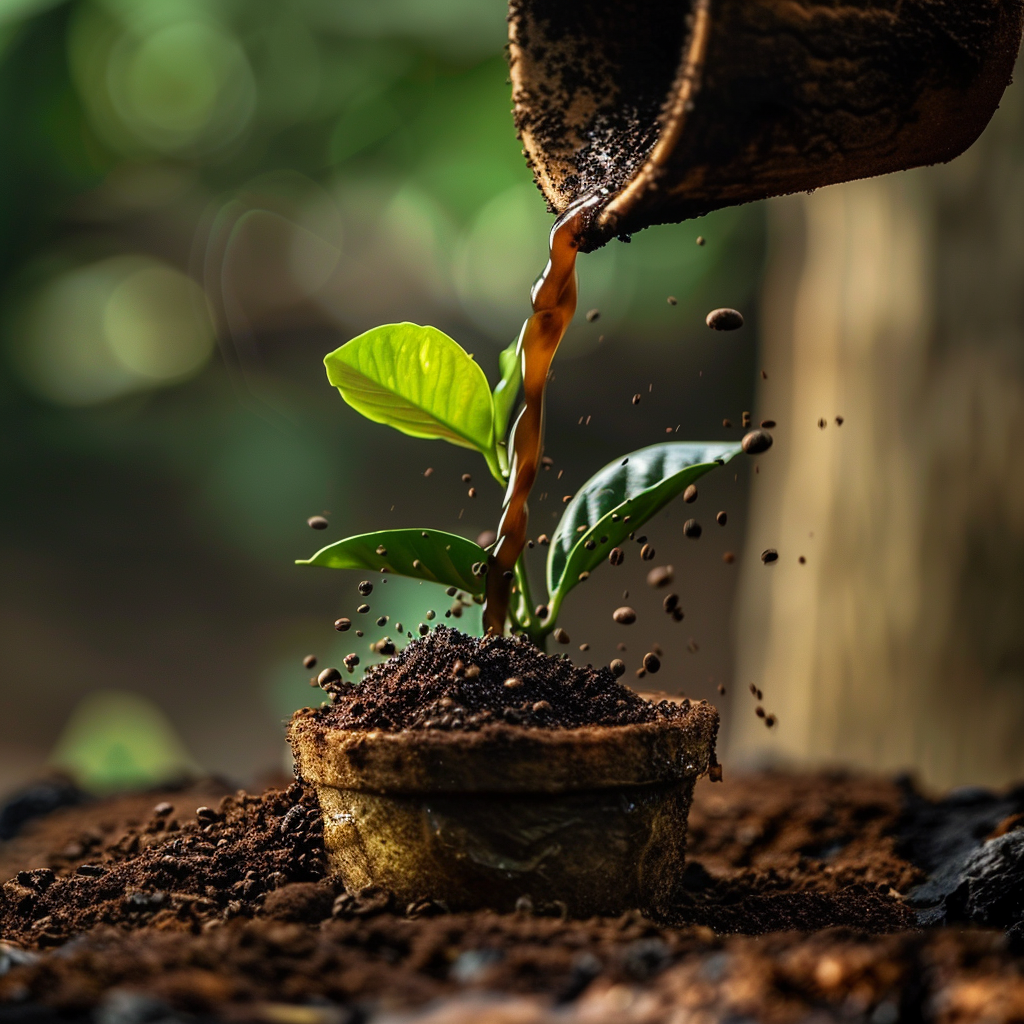
For coffee aficionados, brewing that morning cup is a cherished ritual. But what if there’s more to those coffee grounds than just a caffeine fix? Surprisingly, used coffee grounds can be a valuable resource in gardening, offering numerous benefits for plant health and soil fertility.
Nutrient-Rich Boost:
Coffee grounds are a treasure trove of nutrients essential for plant growth. They contain nitrogen, phosphorus, potassium, and other micronutrients, making them an excellent organic fertilizer. When added to soil, coffee grounds gradually decompose, releasing these nutrients into the surrounding environment. This nutrient-rich amendment enhances soil fertility, providing plants with a steady supply of nourishment for optimal growth.
Improving Soil Structure:
Beyond their nutrient content, coffee grounds contribute to improving soil structure. Their fine texture helps to loosen dense soils, promoting better aeration and drainage. This enhanced soil structure encourages healthy root development and prevents waterlogging, which can lead to root rot and other plant ailments. Incorporating coffee grounds into garden beds or potting mixes can create a favorable growing environment for a wide range of plants.
pH Regulation:
Another notable benefit of coffee grounds is their effect on soil pH. While fresh coffee grounds are acidic, used coffee grounds become more neutral after brewing. This versatility allows gardeners to adjust soil pH levels accordingly. Acid-loving plants, such as azaleas, rhododendrons, and blueberries, can benefit from the acidic nature of fresh coffee grounds, while neutralized coffee grounds can be applied to a broader range of plants without impacting soil pH significantly.
Natural Pest Repellent:
Coffee grounds possess natural compounds, such as caffeine and diterpenes, which have been found to repel certain pests. Sprinkling coffee grounds around plants or incorporating them into the soil can deter pests like slugs, snails, and ants. Additionally, some gardeners report that coffee grounds act as a natural barrier against cats, who dislike the smell and texture of coffee grounds, thus protecting garden beds from feline intrusion.
Enhancing Microbial Activity:
Healthy soil is teeming with beneficial microbes that play a vital role in nutrient cycling and plant health. Coffee grounds can stimulate microbial activity in the soil, fostering a thriving ecosystem beneath the surface. As coffee grounds decompose, they provide organic matter for microbes to feed on, promoting their proliferation. This microbial activity contributes to nutrient mineralization, making essential nutrients more readily available to plants.
Application Tips:
To harness the benefits of coffee grounds effectively, it’s essential to use them correctly. Avoid applying thick layers of coffee grounds directly onto the soil surface, as this can lead to compaction and inhibit water penetration. Instead, mix coffee grounds into the soil or compost pile in moderation. Additionally, it’s advisable to balance the use of coffee grounds with other organic amendments to prevent nutrient imbalances.
Incorporating coffee grounds into plant care practices offers a sustainable and cost-effective way to nurture healthy and vibrant gardens. Whether used as a nutrient-rich fertilizer, soil conditioner, pest repellent, or microbial stimulant, coffee grounds can play a valuable role in promoting plant growth and soil fertility. By embracing the versatility of coffee grounds, gardeners can embark on a journey towards greener thumbs and flourishing landscapes.





